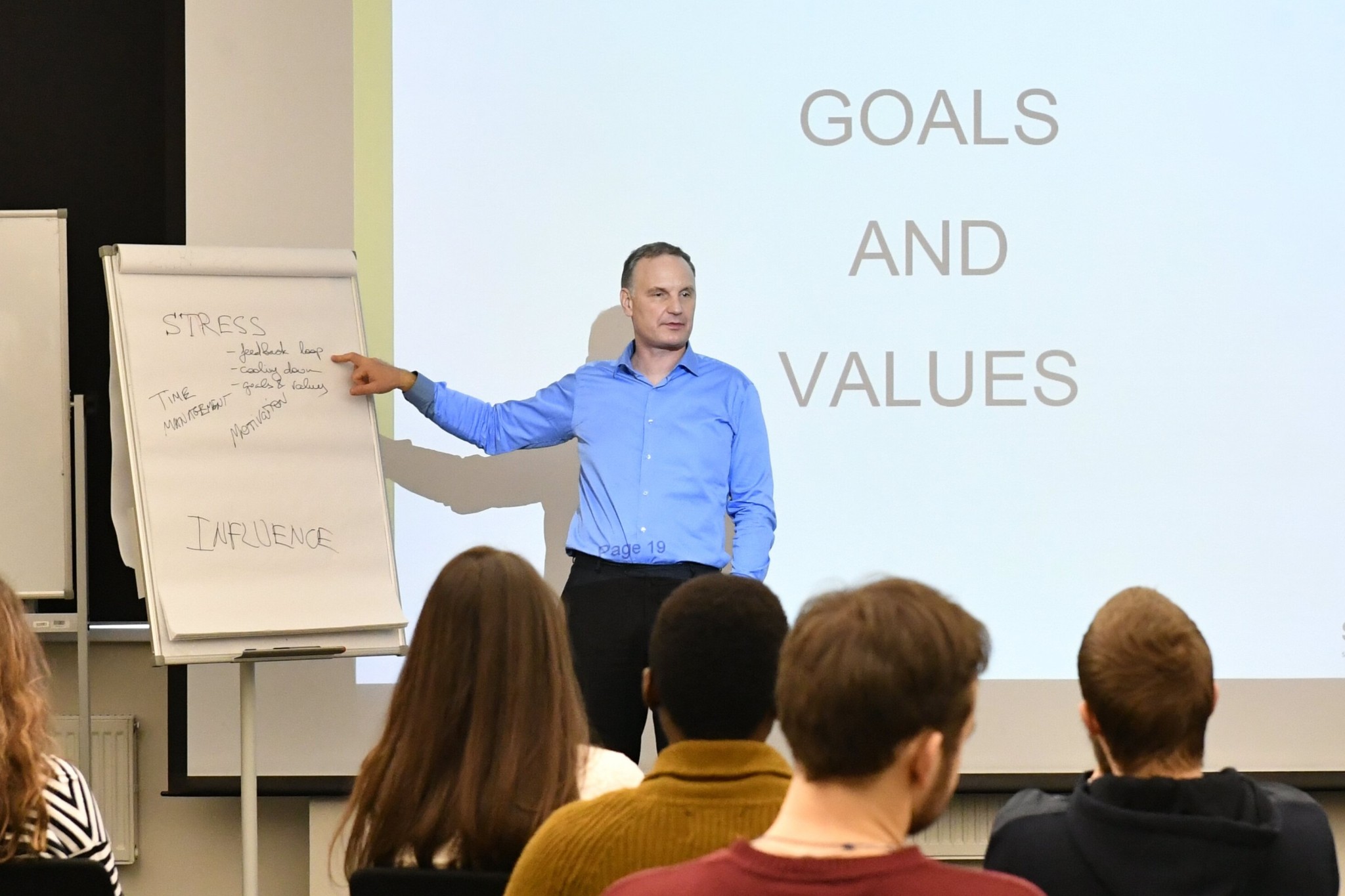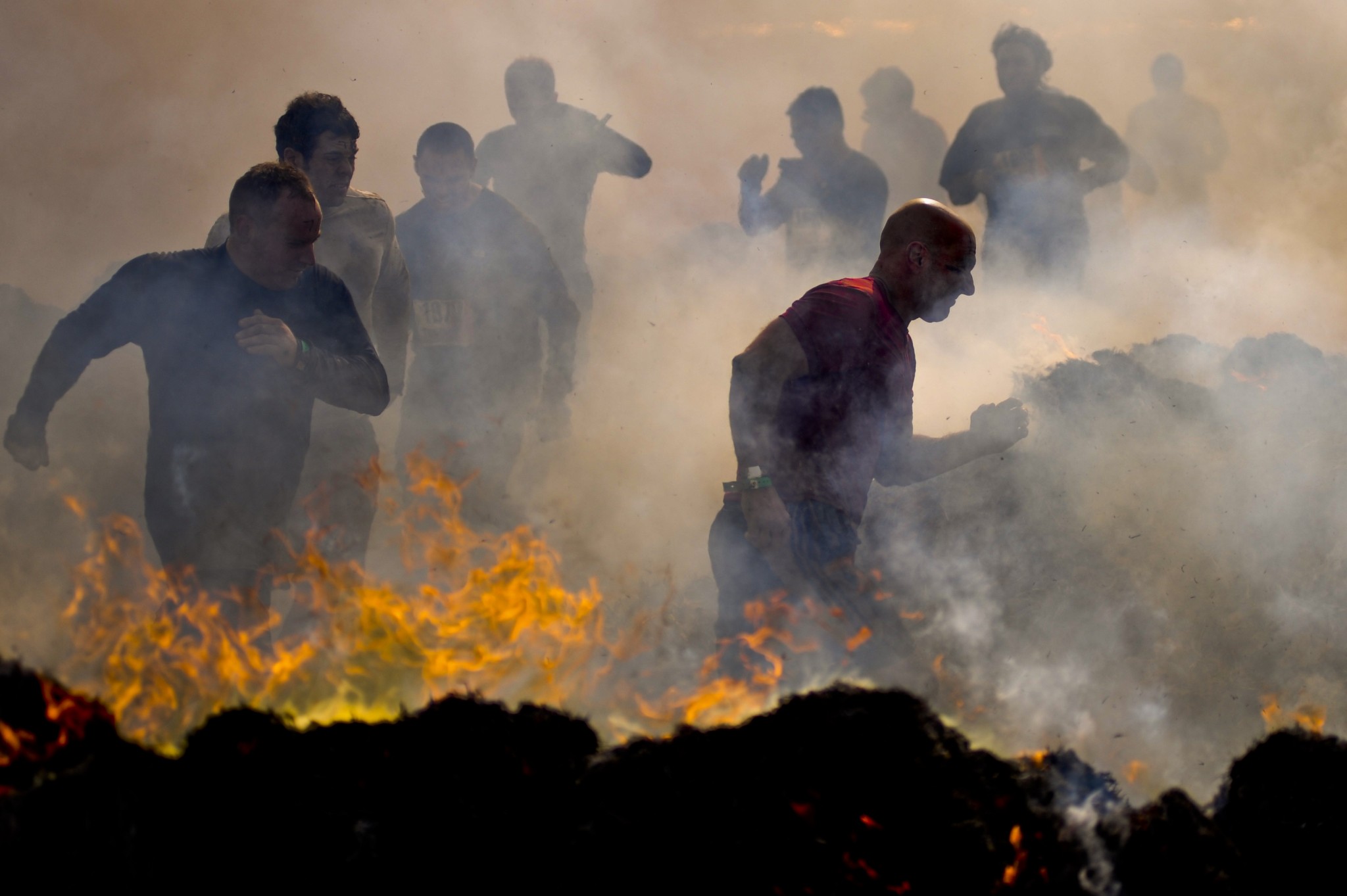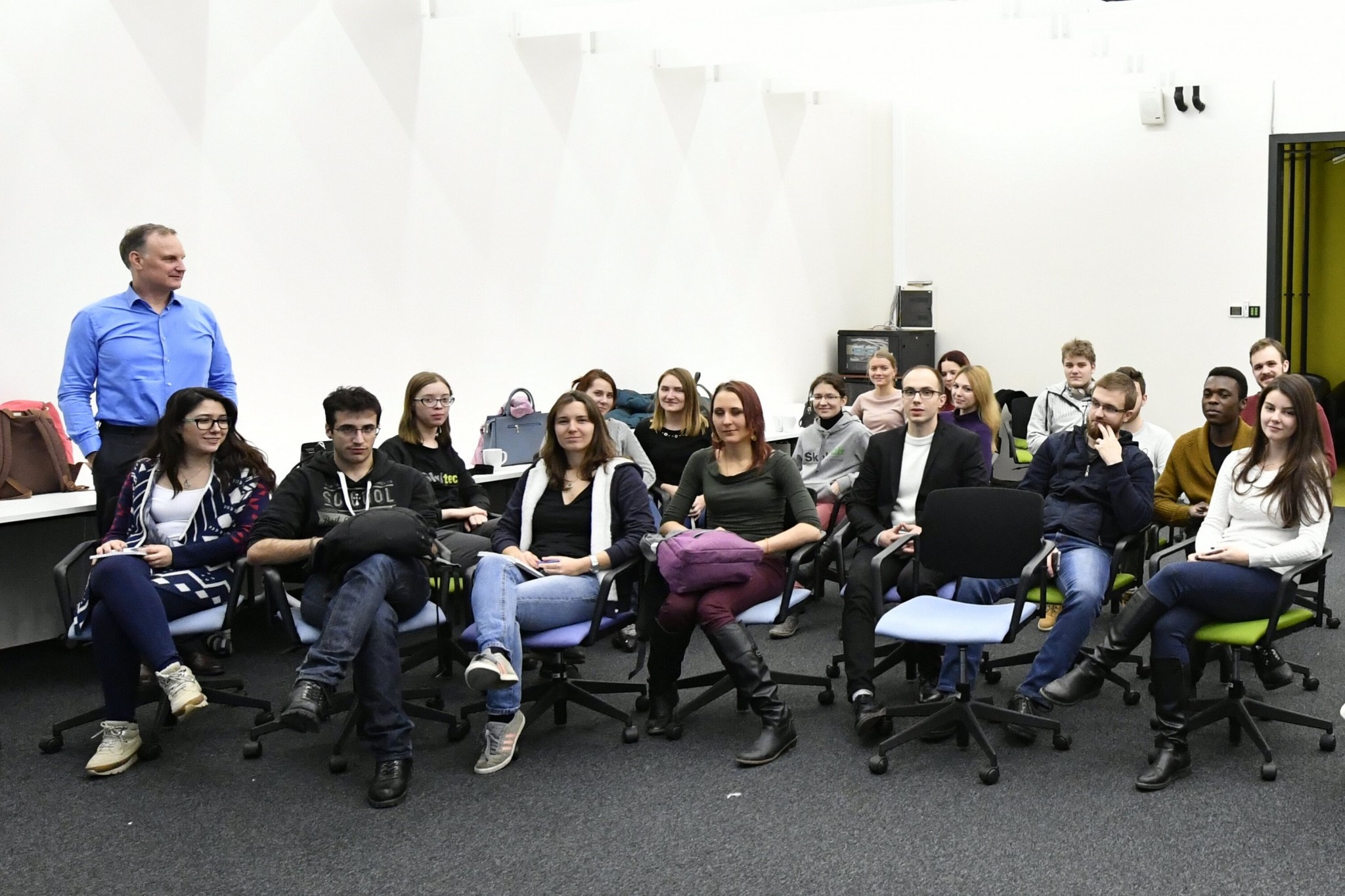In mid-January, a group of visibly frightened Skoltech students took turns walking barefoot down a trail of shattered glass.
Something of an extreme final exam, this was the culmination of a course taught by Skoltech Professor Dmitry Kulish in stress management.
“The whole point is to scare people,” Kulish, a jovial biochemist-turned-entrepreneurship trainer said during a recent interview. “The deliberate aim was to cause stress, as the key to stress management is that you have to be aware of the physiological signs of stress in order to begin to manage it.”
This was just one in a slew of unconventional, experiential-learning courses Skoltech students took part in throughout the month of January as part of the institute’s Independent Studies Period (ISP). Other classes ranged from pilot training to Russian culture, and from 3D-printing to the constructed language of Esperanto.
Skoltech Dean of Education Anna Derevnina, who co-created ISP and oversees its offerings each year, believes that courses such as Kulish’s are essential to the success of the of the program.
“Courses connected to soft skills and humanitarian skills, communication and the development of soft skills are very important,” she said, noting that many students opted to devote their whole ISP period to Kulish’s courses, which included project management and negotiation games, in addition to stress management.
So what do Skoltech’s young scientists have to gain from a solemn march across shards of glass? Plenty, according to Kulish and several of his students.
From biochemistry to business savvy
The product of a line of at least four generations of PhD-holding scientists – his great grandfather was a chemist in imperial Russia – Kulish began his career as a biochemist.
“I built up a successful academic career. I got my PhD, I got several good publications, I did a post-doc at Harvard Medical School, and was poised to get a professorship, but at that point I realized that I wanted a change of pace,” he said.

Kulish guides his students through an exercise aimed at identifying their goals and values. Photo: Skoltech.
He decided to apply for MBA programs, and was accepted to the illustrious Wharton School of the University of Pennsylvania. He would go on to create a business consultancy, combining his biochemistry background with his newly acquired business knowhow in order to help young biomedical startups get off the ground.
Upon arriving at Skoltech, where he is a part-time faculty member of the Center for Entrepreneurship and Innovation (CEI) while maintaining his business consultancy on the side, Kulish was asked to help create classes aimed at inspiring Skoltech students to turn their knowledge into startups.
“Skoltech is a brilliant engineering school. And we push our students into the uncertain world of startups, success in which requires a lot of stress management, project management, and business negotiation skills,” he said.
It was this request that led him to develop his ISP trifecta.
Neither psychologist nor guru: soft skills and hard science converge
Varied though his career has been, Kulish will be the first to point out that contrary to what one might assume based on his course load he’s neither a psychologist nor a self-help guru. And when it comes to teaching science and engineering students to convert knowledge into business savvy, he believes this can be an asset.
“The CEI already has a brilliant, trained psychologist on the faculty,” he said, referring to Professor Maxim Kiselev, who teaches courses on such topics as emotional intelligence.
“Where I excel as a professor is in teaching courses that are at the crossroads between psychology and innovation,” he said, noting that when it comes to teaching entrepreneurial skills to young scientists, his proven track records in science and business add weight to his lectures.
That said, he recognizes that his classes teeter on the brink of the psychological.
“The tricky part about stress management training is that I have to take 25-30 people and put them into a state of stress while maintaining control of the exercise. I have to put them into a state of stress, and then take them out of it. This is quite challenge and has required years of study,” he said.
When asked whether his broken-glass exercise was inspired by comparable activities favored by self-help gurus, Kulish was quick to reject the comparison.

Kulish dismissed comparisons to activities like firewalking, which have been embraced by self-help gurus and popular sporting event organizers in recent decades. Photo: Skoltech.
“I have no goal of providing self-help to Skoltech students. I simply provide them with skills relevant to innovation in a very structured, scientific manner,” he said. In particular, when it comes to walking on broken glass, he explained, the goal is to provide students with unusually high tension so as to help them feel, understand and then manage the physiological sensations of stress.
He added that glass-walking exercise may be the least scary challenge he put his students through during the three-part course.
Other challenges that elicited a combination of jitters and praise included a challenge where blind-folded volunteers took turns navigating their ways through a mass of silent students; success required finding a way to come up with a win-win solution despite these sensory obstacles. Another required students to find creative ways to assert their authority over their peers without revealing their positions of power.
Kulish emphasized that experiential learning is key to the success of his courses; simply reading about these exercises and the lessons behind them is inadequate. “Most of these exercises cannot be understood; they must be experienced. Their beauty is that they enable students to learn something that can’t be taught through books and lectures,” he said.
But what do the students think?
Convincing though Kulish may be, we decided to catch up with some of his students to get their takeaways from the ISP courses.
Tinashe Prince Maviza said that he was drawn to Kulish’s stress management course offerings because he has struggled with self-confidence in the past. “I had not grasped the idea of self-mastery in the area of dealing with stress, thus for my ISP period, I took the [stress management] course to gain more insights and tools to elicit my knowledge on this topic,” he said.
His favorite part of the course was the glass walk: “At first glance, the potential danger triggered a response of panic and worry in my mindset, my heart skipped a beat! As part of a flight or fight mechanism in response to fear and stress, the hormone cortisol is secreted in our bloodstream, which generates this feedback loop in the brain. I had to channel all my energy to focus on the intended task and allow myself to be calm and put myself together in sync to the glass I had to endure and walk on. You can never undo such a great experience like that!”
Arsenii Pozdyshev opted to take the project management course because he has several projects that he would like to turn into successful business ventures, and he wanted to gain the insights of someone who had successfully spun knowledge into business success.
Pozdyshev said that he thoroughly enjoyed the courses, but his favorite part was a bit shocking: “The most exciting and inspiring part was Professor Kulish’s criticisms. He was almost always spot on about my behavior. Sometimes I felt like he could see right through me. That was really inspiring. I’ve never seen a person who could be so straightforward. His courses motivated me to continue working.”

First year Biotech MSc students (from left) Tinashe Prince Maviza, Arsenii Pozdyshev and Elena Gurchenko, and first-year MSc Advanced Materials student Valery Okatenko. Photo: Skoltech, students.
Elena Gurchenko said Kulish’s stress management course stood out to her as soon as she saw the ISP schedule.
What she enjoyed most were the challenges, including a two-hour exercise aimed at helping the students identify the goals and values that drive them. “Obviously, the games were the most exciting and fun part. Nevertheless, the lectures and discussions were comprehensive and really inspiring,” she said.
Valery Okatenko was drawn to the negotiation games course by a combination of “the professor’s charisma and the usefulness of negotiations in general,” he said. “I understand that negotiations can only be taught through practice, and I really like Professor Kulish’s way of teaching. So that combination worked for me and I was not at all disappointed.”
He was particularly struck by how his fellow students behaved during Kulish’s activities. “Of course they are just games, but they are designed in a way that lures people in and makes them act like they would in real life scenarios.” He added that Kulish has a knack for teaching students to methodically implement their scientific knowledge in the business sphere.
In closing, we’ll share the top insights that each of these students gained from Kulish’s unconventional, intense, at times terrifying, but by all accounts truly effective ISP innovation course:
Maviza: “It’s easy to live an undefined life subconsciously without any goal. I took away from this exciting course the ability to rank my goals and values that resonate with what I would want to see materialize in future. This gives me a sense of purpose to walk this life with an intended direction using this tool to de-stress in any situation in spite of the circumstances, and re-aligning myself when I face obstacles while enjoying the journey of life.”
Pozdyshev: “I took two key lessons away from the course. First, planning is the basis of any successful project. This sounds obvious, but as long as you fail to plan, you will fail to understand. Second, during any project, you should have your goal in mind while completing every step, no matter how small. During each step, ask yourself ‘Will the thing I’m doing now lead me to success, or will it help me achieve my final goal?’ This also may seem obvious, but again, to truly understand it, you need to experience it. In Professor Kulish’s course, I experienced both.”
Gurchenko: “There were two lessons that really resonated with me. First, self-confidence starts with the awareness of one’s goals and values. Second, it’s always crucial to be aware of mind games and feedback loops.”
Okatenko: “Stressful conditions reveal the nature of people. One might be very surprised how people are different when under 100% control of themselves and their stress levels and when they are nervous.”


